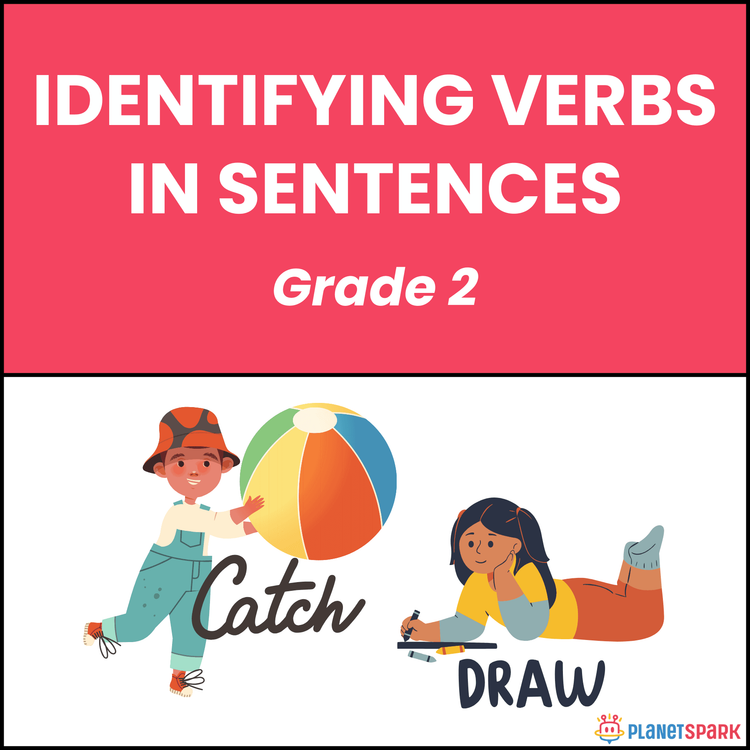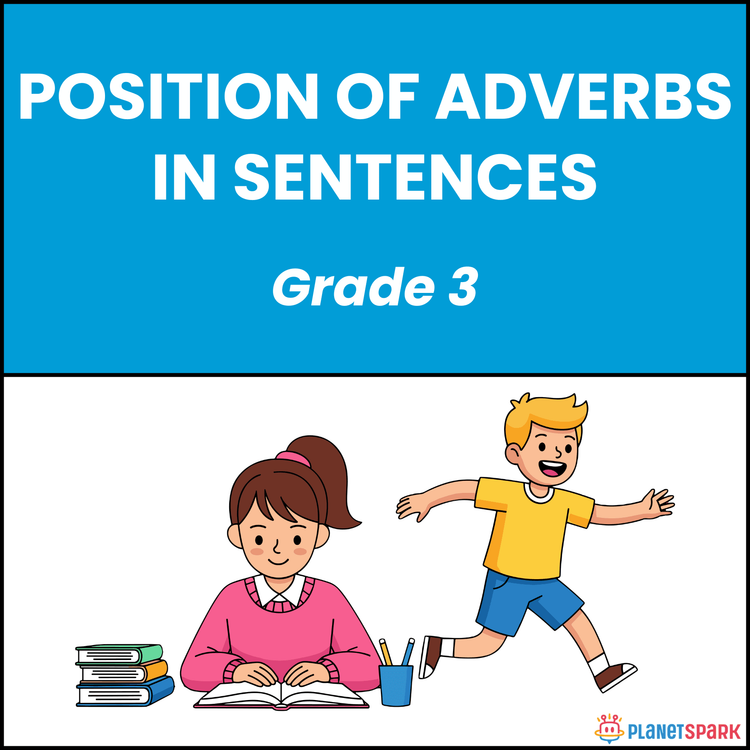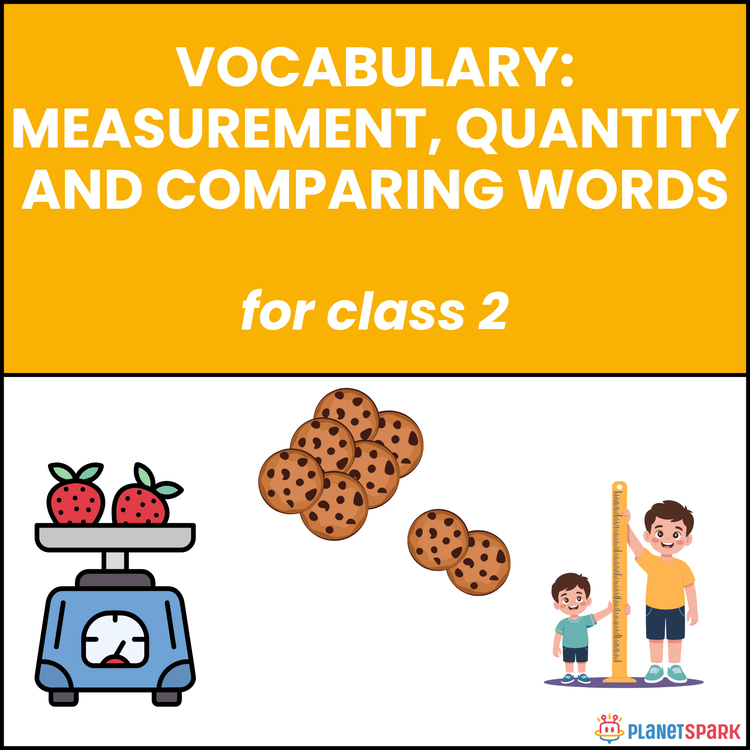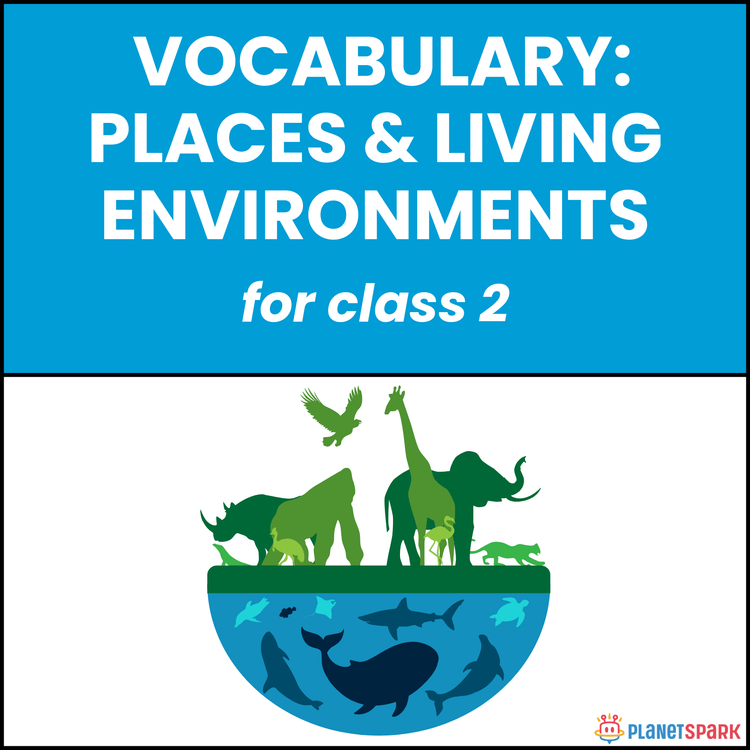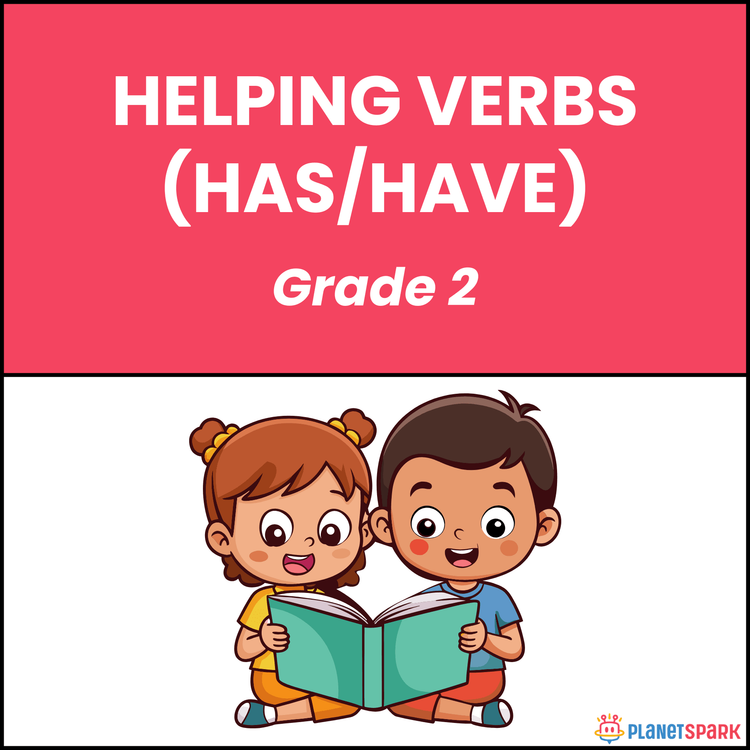Adverbs for Class 2 Kids | Grammar Guide & Fun Examples

Table of Contents
- What Is an Adverb?
- Types of Adverbs for Class 2
- Easy Examples of Adverbs for Kids
- How to Teach Adverbs to Class 2 Kids
- Difference Between Adjectives and Adverbs
- Importance of Learning Adverbs in Class 2
- Common Mistakes Kids Make with Adverbs
- How PlanetSpark Helps Your Child Master Adverbs
- Final Thoughts
- FAQs on Adverbs for Class 2
Adverbs are an essential part of English grammar, especially for young learners in Class 2. These magical words help us understand how, when, and where something happens. For example, if someone runs quickly or eats slowly, the words "quickly" and "slowly" are adverbs, they tell us more about the action.
At PlanetSpark, we believe that building a strong foundation in grammar at an early age is key to effective communication. Our expert-designed curriculum simplifies complex grammar rules into fun and engaging lessons tailored specifically for children. In this blog, we’ll break down what adverbs are, explore their types, and show you how PlanetSpark’s English Grammar Course can help your child master them with confidence.
What Is an Adverb?
An adverb is a word that gives us more information about a verb, adjective, or even another adverb. In simple words, adverbs tell us how, when, where, and how often something happens. Let’s look at some easy examples:
- He runs fast. (How?)
- She will arrive tomorrow. (When?)
- The cat is inside. (Where?)
- They always sing in the car. (How often?)
Adverbs add color and detail to sentences, helping children express themselves more clearly. Understanding and using adverbs at this stage improves both their writing and speaking skills.
Types of Adverbs for Class 2
1. Adverbs of Manner
These adverbs tell us how something happens.
Examples: quickly, slowly, happily, sadly
- She dances gracefully.
- He speaks softly.
2. Adverbs of Time
These adverbs tell us when something happens.
Examples: now, yesterday, tomorrow, soon, later
- I will do it tomorrow.
- They came early.
3. Adverbs of Place
These adverbs tell us where something happens.
Examples: here, there, outside, inside, everywhere
- The kids are playing outside.
- She is waiting there.
4. Adverbs of Frequency
These adverbs tell us how often something happens.
Examples: always, never, often, sometimes, rarely
- He always eats vegetables.
- I sometimes read before bed.
5. Adverbs of Degree
These adverbs tell us the intensity or degree of an action.
Examples: very, quite, too, almost, enough
- She is very kind.
- It’s too hot to go outside.
Join now for a free class or trial session with PlanetSpark to help your child master adverbs confidently!
Easy Examples of Adverbs for Kids
To make learning easier, here’s a list of simple adverbs that are perfect for Class 2 kids:
- Manner: quickly, slowly, neatly, badly
- Time: now, later, soon, yesterday
- Place: here, there, up, down
- Frequency: always, never, often, rarely
- Degree: very, too, quite, enough
Using these adverbs in daily conversations helps reinforce learning.
Help your child gain confidence in English with PlanetSpark’s expert-led classes. Book a free class now!
How to Teach Adverbs to Class 2 Kids
Teaching adverbs can be a fun and interactive experience. Here are some engaging methods parents and teachers can use:
1. Flashcards and Picture Cues
Use flashcards with images and words to explain adverbs. For example, show a child running and pair it with the word “quickly.”
2. Story Building
Ask children to build short stories using the given verbs and adverbs. This enhances their imagination and grammatical knowledge.
3. Adverb Hunts
Let children identify adverbs in simple sentences from books or classroom posters.
4. Songs and Rhymes
Use rhymes that contain adverbs to make learning enjoyable and memorable.
5. Worksheets and Practice Games
Practice with PlanetSpark’s interactive grammar worksheets and games that reinforce adverb usage.
Kickstart your child’s language journey today with a free trial class at PlanetSpark!
Difference Between Adjectives and Adverbs
Importance of Learning Adverbs in Class 2
Learning adverbs early has many benefits:
- Improves writing skills: Children write richer sentences.
- Enhances speaking: Adds clarity and detail to communication.
- Boosts comprehension: Helps in understanding story sequences.
- Develops grammar sense: Strengthens sentence formation.
Children who practice adverbs regularly become more expressive and confident in both written and spoken English.
Common Mistakes Kids Make with Adverbs
Even young learners can make errors when using adverbs. Here are some common ones:
- Using adjectives instead of adverbs: She sings beautiful ❌ → She sings beautifully ✅
- Placing adverbs in the wrong position: He eats quickly his lunch ❌ → He quickly eats his lunch ✅
At PlanetSpark, our mentors guide students to recognize and correct such mistakes through personalized feedback.

How PlanetSpark Helps Your Child Master Adverbs
PlanetSpark’s English Grammar Course is carefully designed to support young learners with:
- 1:1 Personal Attention: Every child is paired with a certified expert in communication and English grammar who customizes lessons to their pace.
- Live Interactive Sessions: Grammar comes alive through engaging activities, fun stories, and real-time practice.
- Gamified Learning: Children complete challenges and earn rewards while mastering adverbs and other grammar concepts.
- Progress Tracking: Parents receive regular updates and reports on their child’s performance and improvement.
- Child-Friendly Curriculum: The content is tailored to the Class 2 level with relatable examples, animations, and quizzes.
- Error Correction & Feedback: Personalized feedback on grammar usage helps fix mistakes quickly.
- Grammar in Action: Students use adverbs in storytelling, poetry, and speeches, making learning practical.
- Interactive Worksheets: Digital grammar exercises that reinforce learning outside the classroom.
- Vocabulary Building: Adverbs are introduced along with synonyms and antonyms to expand language knowledge.
- Speaking & Writing Integration: Children learn to use adverbs naturally while speaking or writing.
- Weekly Grammar Challenges: Keeps learners motivated and helps with concept retention.
- Parent-Teacher Connect: Regular touchpoints to keep parents aligned with the child’s progress.
- Fun Grammar Activities: Role-plays, adverb treasure hunts, and grammar relay games.
Through these features, PlanetSpark ensures that your child not only understands adverbs but also enjoys learning them!
Give your child the grammar boost they deserve. Join PlanetSpark’s English course today for a free trial session!
Final Thoughts
Adverbs are more than just grammar; they are the building blocks of expressive and detailed language. For Class 2 students, learning adverbs builds a strong foundation for future grammar concepts and encourages creativity in communication. The key is to make grammar learning enjoyable, interactive, and meaningful.
PlanetSpark’s English Grammar Course for Class 2 Kids provides a dynamic platform where children can explore grammar in a stress-free environment. From identifying adverbs to using them confidently in everyday conversation and writing, your child will be guided every step of the way by trained educators. If you’re looking to nurture your child’s communication and grammar skills, PlanetSpark is the perfect starting point.
FAQs on Adverbs for Class 2
1. What is the easiest way to teach adverbs to Class 2 kids?
Use daily examples, actions, and games. Enroll your child in PlanetSpark’s grammar classes for structured learning with a fun twist.
2. Are adverbs and adjectives the same?
No. Adjectives describe nouns, while adverbs describe verbs, adjectives, or other adverbs.
3. How many types of adverbs should a Class 2 child know?
Class 2 students should be introduced to the five main types: Manner, Time, Place, Frequency, and Degree.
4. Can adverbs be used in writing and speaking?
Yes. Adverbs help add detail and clarity in both writing and speaking.
5. How does PlanetSpark teach adverbs differently?
PlanetSpark uses real-life examples, gamified sessions, and personalized mentoring to make grammar fun and effective.
6. What kind of grammar exercises does PlanetSpark offer?
Interactive worksheets, storytelling prompts, quizzes, and speaking activities that help children apply adverbs naturally.
7. Is there a trial class available for PlanetSpark’s grammar course?
Yes! PlanetSpark offers a free trial class where your child can explore the course and experience fun-filled grammar learning firsthand.
By understanding and practicing adverbs through stories, activities, and expert guidance, your Class 2 child will be well on their way to becoming a confident English communicator. Book a free session with PlanetSpark today and unlock your child’s grammar potential!
Download Free Worksheets
Personalized Communication Report
Record a video to get a AI generated personalized communication report for your child


